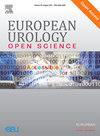前列腺磁共振成像的先进限制成像和重建技术(ART-Pro):一项多中心、多国试验的研究方案,评估双参数磁共振成像和先进、定量扩散磁共振成像检测前列腺癌。
IF 3.2
3区 医学
Q1 UROLOGY & NEPHROLOGY
引用次数: 0
摘要
目前的临床指南强烈推荐多参数磁共振成像(mpMRI)用于改善临床显著性前列腺癌(csPCa)的检测。然而,主要的限制是需要静脉(IV)对比和依赖于读者的专业知识。解决这些问题的努力包括使用双参数磁共振成像(bpMRI)和先进的定量磁共振成像(MRI)技术。其中一项先进技术是限制性光谱成像限制性评分(RSIrs),这是一种成像生物标志物,已被证明可以提高患者水平csPCa检测的定量准确性。前列腺MRI高级限制成像和重建技术(ART-Pro)是一项多地点,多国试验,旨在评估是否可以在标准化,最先进的图像采集设置中避免静脉造影剂,无论是否添加RSIrs。此外,RSIrs将作为一种独立的、定量的、客观的生物标志物进行评估。ART-Pro将分两个阶段进行,将包括总共500名在参与部位临床怀疑前列腺癌的患者进行多参数前列腺MRI检查。ART-Pro-1将评估bpMRI、mpMRI和RSIrs对放射科专家检测csPCa的准确性,并将RSIrs作为一种独立、定量、客观的生物标志物进行评估。ART-Pro-2将评估相同的MRI技术对非专业放射科医生检测csPCa的准确性,并将根据ART-Pro-1专家创建的数据集对结果进行评估。主要终点是评估专家(ART-Pro-1)和非专家(ART-Pro-2)放射科医师在检测≥2级csPCa方面,bpMRI是否优于mpMRI。该试验已在美国国家医学图书馆试验注册处注册(NCT编号:NCT06579417) ClinicalTrials.gov上注册。第一个地点(加州大学圣地亚哥分校)的患者累积于2023年12月开始。初步结果预计将于2026年底公布。本文章由计算机程序翻译,如有差异,请以英文原文为准。
Advanced Restriction Imaging and Reconstruction Technology for Prostate Magnetic Resonance Imaging (ART-Pro): A Study Protocol for a Multicenter, Multinational Trial Evaluating Biparametric Magnetic Resonance Imaging and Advanced, Quantitative Diffusion Magnetic Resonance Imaging for the Detection of Prostate Cancer
Multiparametric magnetic resonance imaging (mpMRI) is strongly recommended by current clinical guidelines for improved detection of clinically significant prostate cancer (csPCa). However, the major limitations are the need for intravenous (IV) contrast and dependence on reader expertise. Efforts to address these issues include use of biparametric magnetic resonance imaging (bpMRI) and advanced, quantitative magnetic resonance imaging (MRI) techniques. One such advanced technique is the Restriction Spectrum Imaging restriction score (RSIrs), an imaging biomarker that has been shown to improve quantitative accuracy of patient-level csPCa detection. Advanced Restriction imaging and reconstruction Technology for Prostate MRI (ART-Pro) is a multisite, multinational trial that aims to evaluate whether IV contrast can be avoided in the setting of standardized, state-of-the-art image acquisition, with or without addition of RSIrs. Additionally, RSIrs will be evaluated as a stand-alone, quantitative, objective biomarker. ART-Pro will be conducted in two stages and will include a total of 500 patients referred for multiparametric prostate MRI with a clinical suspicion of prostate cancer at the participating sites. ART-Pro-1 will evaluate bpMRI, mpMRI, and RSIrs on the accuracy of expert radiologists’ detection of csPCa and will evaluate RSIrs as a stand-alone, quantitative, objective biomarker. ART-Pro-2 will evaluate the same MRI techniques on the accuracy of nonexpert radiologists’ detection of csPCa, and findings will be evaluated against the expertly created dataset from ART-Pro-1. The primary endpoint is to evaluate whether bpMRI is noninferior to mpMRI among expert (ART-Pro-1) and nonexpert (ART-Pro-2) radiologists for the detection of grade group ≥2 csPCa. This trial is registered in the US National Library of Medicine Trial Registry (NCT number: NCT06579417) at ClinicalTrials.gov. Patient accrual at the first site (UC San Diego) began in December 2023. Initial results are anticipated by the end of 2026.
求助全文
通过发布文献求助,成功后即可免费获取论文全文。
去求助
来源期刊

European Urology Open Science
UROLOGY & NEPHROLOGY-
CiteScore
3.40
自引率
4.00%
发文量
1183
审稿时长
49 days
 求助内容:
求助内容: 应助结果提醒方式:
应助结果提醒方式:


